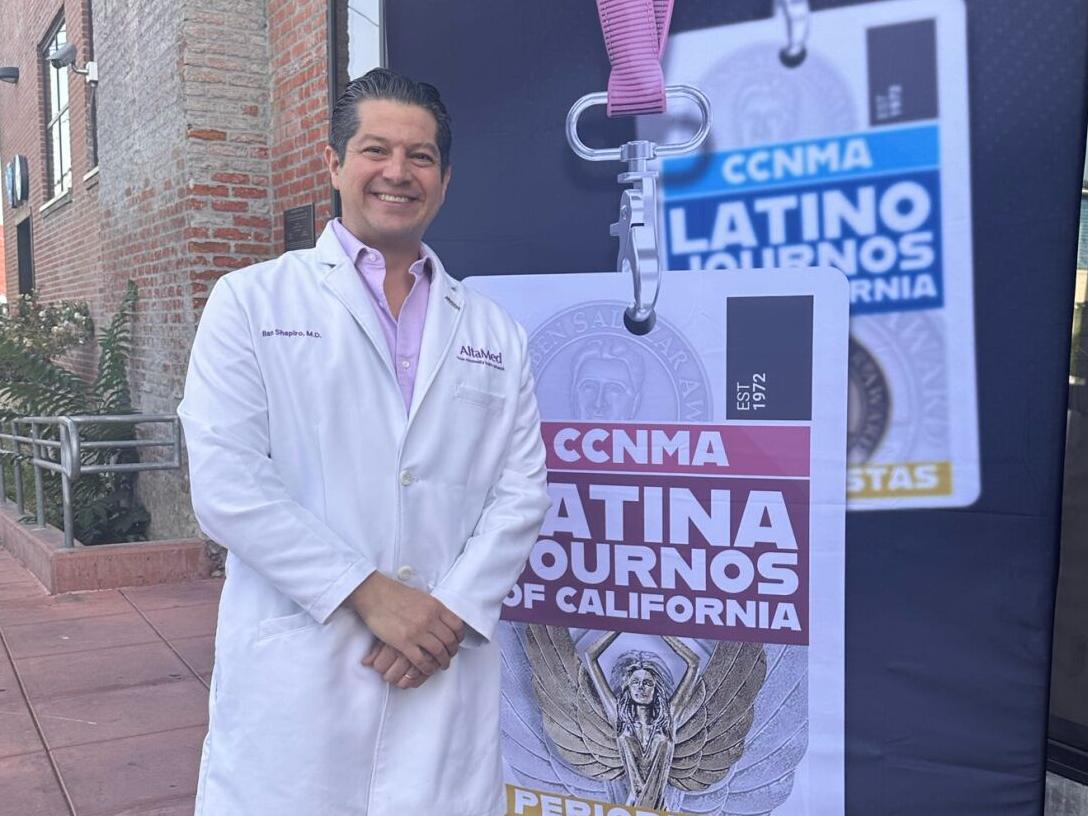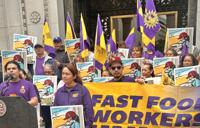Marisol is a 60-year-old undocumented immigrant who lives alone in Los Angeles and works full-time.
She was very excited to learn she would qualify for Medi-Cal, but her celebration was short-lived when she was told she makes "too much" money – about $36,000 annually – and was denied the state's coverage.
Marisol, who didn't want to provide her last name for security reasons, said that with the high cost of living it may seem like a lot of money, but she lives paycheck to paycheck, barely being able to afford her rent, bills, food, car expenses and other necessary items at home. She continues to be one of the many undocumented Californians who can't afford to pay for health insurance out of pocket or to receive healthcare through their employer.
"I just try to stay healthy and rely on homemade remedies," she said.
In 2024, California became the first state in the nation to offer Medi-Cal to all its low-income residents regardless of immigration status. Despite the good news, research finds that about half a million undocumented immigrants don't qualify for the state's health insurance program, Medi-Cal, because they are not poor enough.
In California, this translates to $20,783 annually for an individual and $43,056 for a family of four, according to the California Department of Health Care Services (DHCS).
A UC Berkeley Labor Center's study, "California's Uninsured in 2024," revealed that undocumented Californians are excluded from purchasing coverage through Covered California–the state's health insurance marketplace—and from receiving the federal premium subsidies that help make coverage more affordable for other Californians.
A panel at a recent one-day conference touched on this topic, including how affordable health care can be challenging to navigate when there is confusion about who qualifies.
Identifying health symptoms on time, having adequate access to affordable healthcare services, and the importance of having Latino doctors who understand the language and culture are other health topics on the minds of Latinos.
Options for the uninsured
Medical experts, such as Dr. Don Garcia from Clinica Monseñor Romero in Los Angeles, spoke on one of the panels during the one-day conference held in Boyle Heights called "Salud: The Health Gap in Latinos," hosted by the California Chicano News Media Association (CCNMA) and the California Endowment.
He said there are options for those without healthcare insurance, including tCommunity Health Centers (CHCs) like Clinica Oscar Romero. The CHCs were established in 1965 under President Lyndon Johnson to fight poverty. Now they exist in every state and U.S. territories to provide care to all patients, regardless of ability to pay. These centers help reduce barriers such as cost, lack of insurance, distance and language for their patients, according to the National Association of Community Health Centers (NACHC).
Dr. Garcia said taking advantage of these services is vital because it can prevent health from deteriorating. He indicated that when people are unaware of services such as the ones provided by the CHCs, they often find themselves holding on to the pain until it is too late, ending up in the emergency room. Because of the complex and challenging system on site, many Latinos don't understand the process, and these emergency visits end up being extremely expensive and, at times, even lead to debt collection.
"For many newly-arrived immigrants, it is unfamiliar that unless there's someone helping them navigate the system, they won't access the services appropriate to each situation," said Dr. Garcia.
To close this gap, Clinica Romero constantly works with the community at local events and with promotoras, community health workers who live in the neighborhoods they serve.
Mental health is also physical health
The panelists agreed that having a mental health checkup is equally important as having a physical checkup. Dr. Garcia said he has seen several patients who tend to neglect their mental issues in fear of being identified as crazy.
However, this condition is very real, and the brain can't be neglected. Otherwise, the pain will transfer to other parts of the body, such as a stomachache or to the kidneys or lungs.
"There's nothing wrong with having a brain health issue. If there are issues of specifics, they need to be sent to the right doctor," he said.
Yarel Ramos, a journalist at Univision 34, said in her experience covering health issues, she has identified three critical aspects that must be addressed: mental health, physical health and social media.
She said more people are experiencing mental health issues, especially men, but are not talking about it. She provided the example of a recent story she worked on about a husband and father of four who committed suicide. His wife would notice some changes, but he never told her what was bothering him.
In the physical health aspect, Ramos said it is important for the community to provide resources to change home habits and create healthier environments. In the social media aspect, she said it is essential to pay attention to how much social media we consume, especially among the youth, because this can affect them severely.
More Latino doctors are needed
Dr. Ilan Shapiro, with AltaMed, said two important things must be addressed in the Latino community when visiting a doctor: the cultural aspect and language. Currently, there is a Medical-Physician pilot program in California that is bringing more Latino doctors from Mexico and Latin America who speak Spanish to address this issue.
However, Shapiro said it takes time to train doctors and the lack of time, money and mentorship makes it harder. Therefore, it is important to encourage local high school students to pursue a career in medicine. Once students accept this path, they must be accompanied throughout grades eight through 12 with mentorships, scholarships, and connections to ensure they make it to the end. Because this Latino youth is local, they will make sure the cultural and language barriers are addressed.
"A lot of the time you hear, that doctor has better grades than the other, but I don't care about that. I care about a doctor who understands medicine and understands me because that will be a quick conversation to move forward," said Shapiro.
Taking care of issues inside a clinic is as important as those outside for a better healthcare system. Shapiro said Latinos have the opportunity to shift the way that we eat, the way that we move and the way that we take care of our physical and mental health through civic health. He said when the community participates in civics, communities get better.
"Representation matters," he said. "Communities that do not vote have a direct correlation with hypertension, high diabetes, higher mortality rate, cancer and other things. That's not a miracle. It's because the services are not there, schools, green spaces, the environmental structure is not there."
Panelists agreed that journalists and medical experts are committed to continue informing the community about the options for affordable healthcare services.











(0) comments
Welcome to the discussion.
Log In
Keep it Clean. Please avoid obscene, vulgar, lewd, racist or sexually-oriented language.
PLEASE TURN OFF YOUR CAPS LOCK.
Don't Threaten. Threats of harming another person will not be tolerated.
Be Truthful. Don't knowingly lie about anyone or anything.
Be Nice. No racism, sexism or any sort of -ism that is degrading to another person.
Be Proactive. Use the 'Report' link on each comment to let us know of abusive posts.
Share with Us. We'd love to hear eyewitness accounts, the history behind an article.